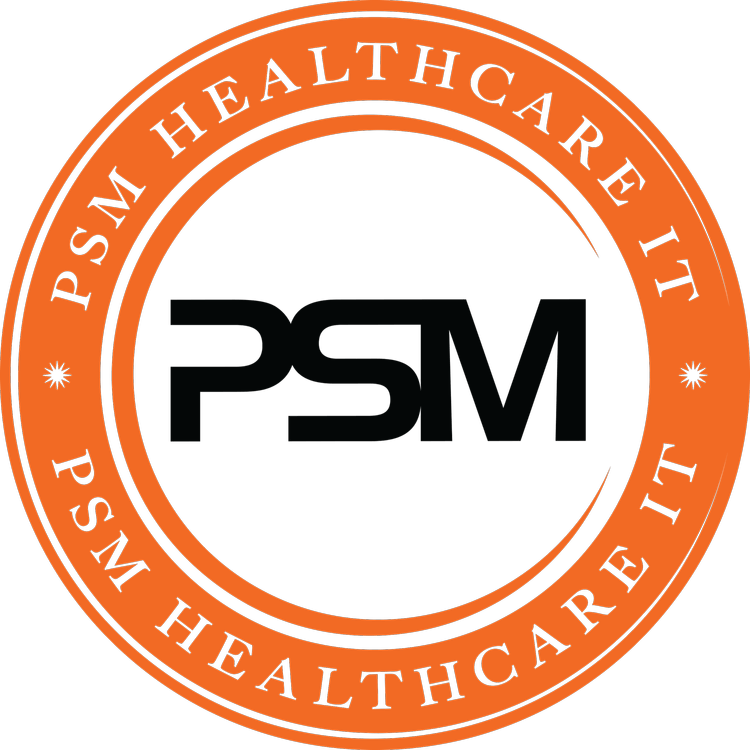Are you tired of navigating the complexities of healthcare IT support in Oakland? Struggling to find reliable solutions for your healthcare technology needs, practice? Our comprehensive Oakland Healthcare IT Support services are here to streamline your operations, enhance efficiency, and ensure seamless patient care for your practice. With our expert team by your side, you can focus on what truly matters – delivering top-notch healthcare services while we handle all your IT support requirements for your practice. Say goodbye to downtime, data security concerns, and IT headaches. Let us optimize your systems so you can provide the best care possible to your patients with scalable healthcare IT services.
EOL (
Key Takeaways

-
Implement robust cybersecurity measures to safeguard sensitive patient data, electronic health records, and prevent cyber threats in medical facilities.
-
Ensure seamless system integration for healthcare providers to streamline operations and enhance patient care delivery.
-
Leverage healthcare IT services to optimize data management processes, ensuring accuracy, accessibility, and compliance with industry regulations.
-
Look for IT professionals with specialized expertise in healthcare IT support to address the unique needs and challenges of the medical field.
-
Prioritize IT support features such as 24/7 monitoring, quick response times, and proactive maintenance to maintain the efficiency and security of healthcare systems.
-
Stay updated on industry compliance requirements and regulations to ensure that IT systems in medical facilities meet legal standards.
Overview of Healthcare IT Support
Importance of IT Support
Healthcare IT support plays a crucial role in maintaining smooth operations within medical facilities. Effective IT support directly impacts patient care and enhances the overall efficiency of healthcare practices. Reliable IT services are essential to minimize downtime and prevent operational disruptions, ensuring that healthcare providers can focus on delivering quality care without technological hindrances.
Tailored IT Services
Customizing IT services is vital to cater to the unique needs of different healthcare settings. Small clinics require specific IT support tailored to their scale and requirements, while large hospitals demand more comprehensive solutions to manage their extensive operations effectively. By assessing these distinct needs, tailored IT services can optimize service delivery and streamline daily operations. Implementing flexible IT solutions allows medical practices to adapt as they grow, ensuring scalability and efficiency in their IT infrastructure.
Reliable IT Solutions
Healthcare providers rely on dependable and consistently available IT solutions to deliver uninterrupted care to patients. Utilizing 24/7 monitoring systems enables proactive identification and resolution of potential IT issues before they escalate, preventing any disruptions in patient care or practice operations. Moreover, supporting healthcare practices with robust backup systems ensures continuity during outages or emergencies, safeguarding critical data and maintaining seamless operations.
Key Features of IT Support
Data Management
Healthcare IT support plays a crucial role in organizing patient data efficiently for quick access by healthcare providers. By implementing streamlined systems, it becomes easier for professionals to enter data and minimize administrative burdens. Moreover, these systems ensure compliance with data management regulations, safeguarding patient information.
Establishing robust cybersecurity measures is essential for protecting sensitive patient data from cyber threats. Healthcare IT support educates staff on the best practices for data protection and raises awareness about potential threats. Regular updates to security protocols are crucial to effectively counter evolving cyber threats and ensure data integrity.
Cybersecurity Measures
To enhance operational efficiency, healthcare IT support integrates various systems within the healthcare sector. By creating a unified platform for data sharing, different departments can communicate seamlessly. This integration reduces redundancy, enhances accuracy, and improves overall efficiency by consolidating information across multiple platforms.
Benefits of Healthcare IT Services
Enhanced Efficiency
Boost operational efficiency through optimized healthcare IT services. Identify bottlenecks in workflows and implement technology solutions to resolve them effectively. Encourage staff to utilize medical IT services efficiently for maximum productivity.
Improved Patient Care
Leverage technology to enhance the quality of patient care provided by healthcare providers. Utilize data analytics to inform treatment decisions and improve patient outcomes effectively. Foster better patient-provider communication through integrated IT solutions.
Cost Savings
Identify areas where IT support can reduce operational costs for healthcare practices. Implement cloud solutions to minimize infrastructure expenses and maintenance effectively. Evaluate long-term savings from reduced downtime and improved operational efficiency.
Data Management in Healthcare IT
Secure Data Storage
Patient health data management requires secure storage solutions to protect sensitive information from unauthorized access. Utilize encryption and other technologies to safeguard data at rest and in transit. Regularly assess storage solutions to maintain compliance with industry standards.
Implementing advanced EHR systems necessitates robust data backup solutions to ensure the protection of critical healthcare data. Schedule regular backups to guarantee data recoverability in case of loss or corruption. Test backup systems frequently to validate their reliability and effectiveness.
Data Backup Solutions
Healthcare organizations must stay updated on regulations like HIPAA to ensure compliance with IT practices. Assist them in navigating regulatory requirements and conducting regular compliance assessments. Identify and address potential gaps through proactive measures to avoid penalties.
Cybersecurity for Medical Facilities
Protecting Patient Information
Patient information security is paramount in healthcare IT support. Develop strategies to protect patient privacy and confidentiality effectively. Educate staff on the critical importance of safeguarding patient data in all health interactions. Monitor access to patient information rigorously to prevent unauthorized disclosures.
-
Pros:
-
Enhanced patient trust and loyalty
-
Compliance with data protection regulations
-
Preventing Cyber Threats
To ensure comprehensive health IT security, medical facilities must proactively prevent cyber threats. Implement measures to detect and mitigate potential cyber risks before they escalate. Utilize advanced security software to monitor and respond promptly to any suspicious activities detected. Regularly conduct training sessions to keep staff updated on the latest cyber threats.
-
Cons:
-
Initial investment in advanced security software
-
Time-consuming nature of regular training sessions
-
Regular Security Audits
Frequent security audits are essential for evaluating the effectiveness of existing cybersecurity measures. Identify vulnerabilities through these audits and promptly develop action plans to address them. Engage third-party experts to provide an objective assessment of your facility’s security practices.
-
Conduct frequent security audits
-
Identify vulnerabilities promptly
-
Develop action plans for improvement
System Integration for Providers
Seamless Software Integration
Healthcare IT support involves facilitating the integration of various software applications used in medical facilities. This process ensures that different systems communicate effectively to reduce data silos. By streamlining workflows, healthcare providers can automate data transfer between software platforms, enhancing operational efficiency.
-
Pros:
-
Improved data accessibility
-
Enhanced communication among systems
-
Interoperability Solutions
To promote interoperability among healthcare systems, providers implement solutions to enhance data exchange. Supporting the adoption of standards enables different systems to work together seamlessly. This approach ultimately improves patient care coordination through effective information sharing.
-
Cons:
-
Initial implementation costs
-
Potential compatibility issues with legacy systems
-
Streamlined Workflows
Providers analyze current workflows to identify inefficiencies and areas for improvement within their operations. Implementing IT solutions that automate repetitive tasks and reduce manual errors is crucial. Encouraging collaboration among staff fosters a more efficient working environment, leading to improved patient outcomes.
-
Analyze current workflows to identify inefficiencies.
-
Implement IT solutions to automate repetitive tasks.
-
Encourage staff collaboration for an efficient working environment.
Qualifications of IT Professionals
Certification and Training
Provide ongoing training to keep staff updated on new technologies in healthcare IT. Encourage certification in relevant areas to enhance expertise and credibility. Support professional development to ensure readiness in handling diverse IT challenges.
Industry Experience
Benefit from over 22 years of experience in healthcare IT for expert support. Utilize insights from working with various healthcare organizations to deliver tailored solutions. Share best practices derived from extensive industry knowledge to optimize IT systems.
Specialized Knowledge
Employ IT professionals with specialized expertise in healthcare technology for tailored solutions. Ensure team members are well-versed in the unique challenges faced by medical practices. Foster continuous education to keep the team abreast of emerging technologies.
Expertise in Healthcare IT Support
Understanding Medical Systems
Healthcare IT support providers must understand the intricate workings of medical systems. They tailor IT solutions to meet the unique operational goals of healthcare practices. By collaborating with healthcare professionals, they ensure technology aligns with clinical needs.
Efficient Problem Resolution:
-
Establish quick response protocols for addressing IT issues.
-
Utilize remote support tools to resolve problems promptly.
-
Document common issues and solutions for streamlined resolution.
Continuous Learning
Personalized healthcare IT support involves fostering a culture of continuous learning. The team stays updated on the latest trends in healthcare technology. Engaging in industry conferences and training enhances their knowledge and skills.
Role of IT in Compliance
Regulatory Standards
Healthcare IT support plays a crucial role in ensuring compliance with regulatory standards. It is essential to align all IT practices with the specific regulations governing the healthcare industry. By staying up-to-date with the latest regulatory requirements, IT professionals can help healthcare organizations navigate the complex landscape of compliance.
-
Regularly reviewing and updating policies is imperative to reflect any changes in regulations.
-
Providing guidance to healthcare organizations on meeting compliance requirements is a key function of IT support in the healthcare sector.
Audit Preparation
IT support teams are instrumental in assisting healthcare organizations in preparing for audits by ensuring compliance with regulatory standards. Conducting mock audits allows for the identification of potential issues before official evaluations take place. This proactive approach helps organizations address any compliance gaps and improve their overall audit readiness.
-
Conducting mock audits to identify potential issues before official evaluations.
-
Providing documentation and support to facilitate a smooth audit process is essential for successful compliance outcomes.
Risk Management
Effective risk management strategies are vital for identifying and mitigating potential IT risks in healthcare settings. IT support professionals work to implement robust risk management practices that safeguard sensitive patient data and ensure uninterrupted service delivery. Regular assessments are conducted to evaluate the effectiveness of risk management measures and make necessary adjustments.
-
Conducting regular assessments to evaluate the effectiveness of risk management practices.
-
Developing contingency plans to address potential IT disruptions ensures continuity of care in healthcare settings.
Final Remarks
In the fast-paced world of healthcare, having reliable IT support is crucial for seamless operations. From data management to cybersecurity and system integration, the role of IT professionals in ensuring compliance and efficiency cannot be overstated. By leveraging specialized expertise in healthcare IT support, your facility can enhance patient care, streamline processes, and stay ahead in an ever-evolving industry. Remember, investing in top-notch IT services not only benefits your organization but also prioritizes the well-being of those you serve.
Embrace the power of cutting-edge technology in healthcare by partnering with seasoned IT professionals who understand the unique challenges and opportunities in this field. Stay proactive, stay secure, and stay efficient with robust IT support tailored to meet your specific needs. Your journey to optimized healthcare IT starts now.
Frequently Asked Questions
What are the key features of IT support for healthcare providers, hospitals, patient data management, advanced EHR systems, and patient data security secure?
IT support for healthcare providers includes 24/7 monitoring, EMR system maintenance, network security, and compliance assistance to ensure smooth operations and data protection.
How can healthcare IT services benefit medical facilities?
Healthcare IT services improve operational efficiency, enhance patient care quality, streamline communication among staff, ensure regulatory compliance, and safeguard sensitive patient data.
What qualifications should IT professionals have for healthcare IT support in hospitals, medical practice, patient data management, and advanced EHR systems?
IT professionals in healthcare should possess certifications like CompTIA Healthcare IT Technician, experience in EMR systems, knowledge of HIPAA regulations, and strong problem-solving skills to effectively support medical facilities.
Why is cybersecurity crucial for medical facilities?
Cybersecurity is vital for protecting patient information from cyber threats, ensuring compliance with regulations like HIPAA, maintaining trust with patients, and preventing costly data breaches that can harm a facility’s reputation.
How does system integration benefit healthcare providers?
System integration enables seamless data flow between different healthcare applications, enhances interoperability among systems, improves workflow efficiency, reduces errors, and provides a holistic view of patient data for better decision-making.





